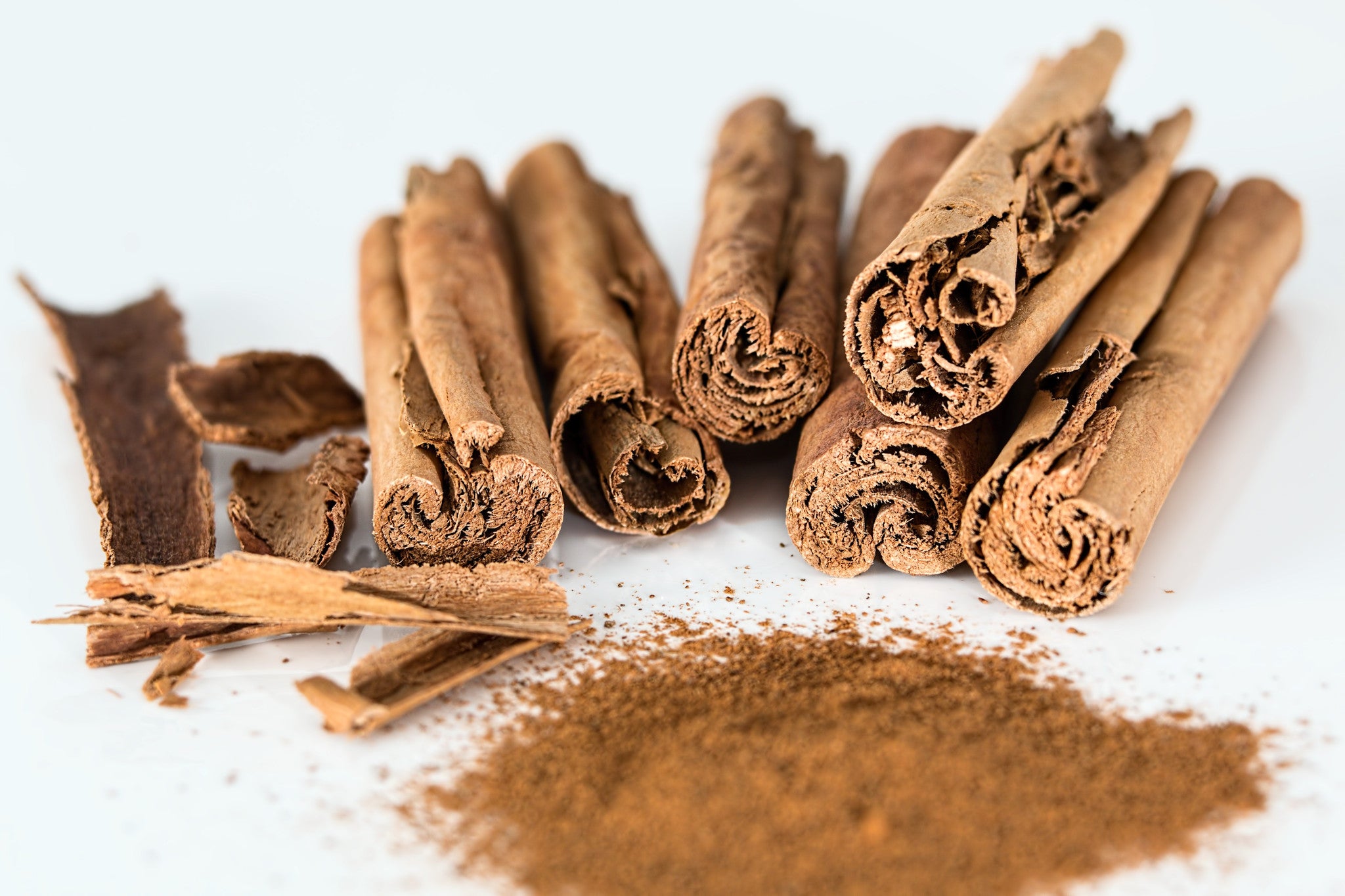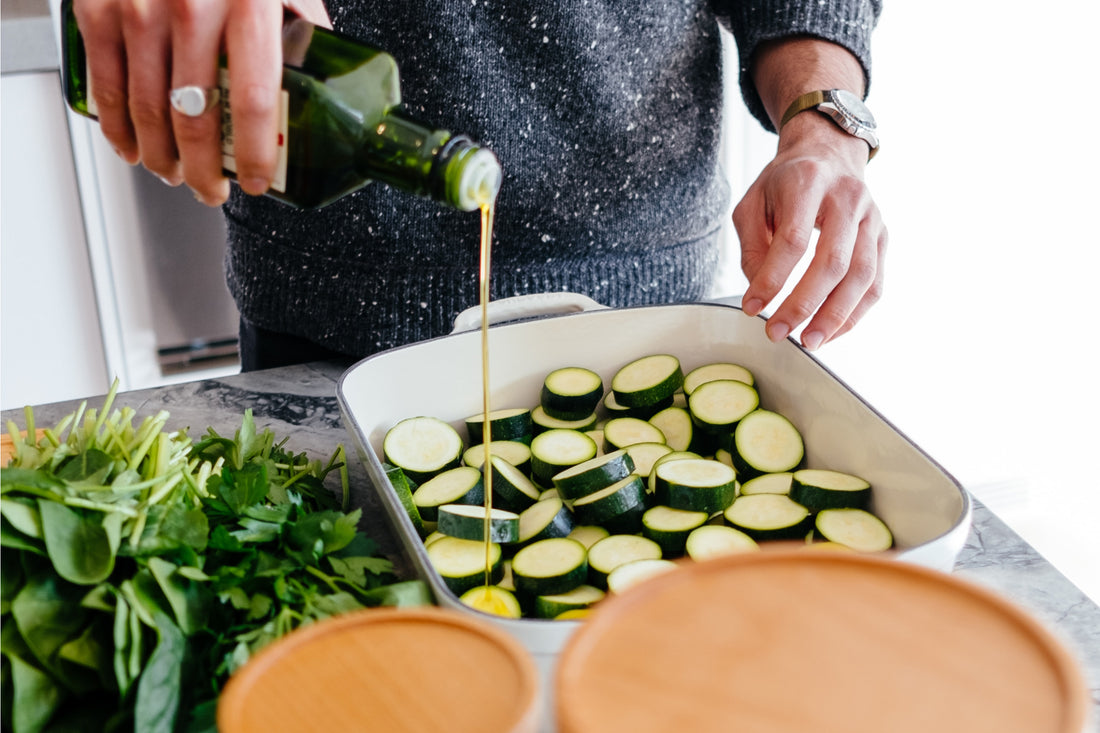Have you ever noticed that fall seems to have a distinctive flavor? It’s sweet, yet musky and rich with a little bit of spice. As the weather starts to cool down, the notes of cinnamon, nutmeg, and cloves begin to pop up everywhere. There’s the almond milk pumpkin spice latte at your local coffee shop; the limited edition cinnamon apple granola at the farmer’s market down the street; and the cinnamon spice black tea that pops up on the grocery store shelves. While all of these spices may make you feel good simply because of the season they represent, the benefits go way beyond flavor.
Each one of these typical fall spices—cinnamon, nutmeg, clove, cardamom, and ginger—contain powerful compounds that can improve your physical health.
Cinnamon
Inflammation is an important physiological response. It helps protect your body from infection and fights tissue damage when there’s an immediate threat. However, when inflammation becomes chronic, which can result from a poor diet, high stress, or leaky gut, to name a few, it can turn into a big problem.
Cinnamon is loaded with powerful antioxidants that help fight inflammation and can lower the risk of associated diseases like heart disease and inflammatory bowel disease. The antioxidants in cinnamon also protect the body from damage from free radicals—unstable compounds that can cause DNA damage that results in cancer, heart disease, and diabetes. Cinnamon may also improve glucose and lipid levels (LDL, HDL, and total cholesterol) in people with type 2 diabetes.
A specific compound in cinnamon called CEppt contains properties that can slow down the progression of Alzheimer’s disease and the development of the plaques on the brain associated with the condition.
Nutmeg
Like cinnamon, nutmeg has antioxidant properties that fight inflammation and oxidative damage, but it can also help alleviate digestive troubles like nausea, diarrhea, and excessive gas. Nutmeg also contains a natural organic compound called myristicin that can protect your brain from degenerative diseases like Alzheimer’s and dementia.
According to tradition, we tend to turn to nutmeg as the weather starts to cool down because it helps warm our bodies up and can fight off colds and stomachaches — ailments that are more common in the fall and winter.
Clove
Cloves might be small, but they pack a big punch. They are anti-fungal, antiseptic, antibacterial, and antiseptic. They’re also loaded with antioxidants and offer a good source of manganese—a trace mineral that plays a role in the metabolism of carbohydrates and fats, blood sugar regulation, and blood clotting.
In Ayurvedic medicine, cloves are used to make tea that relieves a sore throat and acts as an expectorant—an agent that helps you cough up excess phlegm. Go easy though. When it comes to flavor, a little bit of clove goes a long way.
Clove oil, the essential oil extracted from the clove buds, encourages healthy teeth and gums and has been used traditionally as a remedy for oral ulcers, toothache, and sore gums.
Cardamom
You might not be as familiar with cardamom as you are with the other spices, but you’ll want to get familiar with this nutritional powerhouse. Cardamom has been used in cooking and medicine for centuries. There are two types: green and black. While both have health benefits, green cardamom is especially rich in antioxidants that may protect against both heart disease and cancer. Other research on the ancient spice shows that cardamom may help lower blood pressure and keep your immune system strong.
The sweet spice also has antimicrobial properties, so it can help fight off unwanted bacteria and fungi.

Ginger
I don’t like to play favorites, but you know that phrase “save the best for last”? Well, there’s a reason I’m closing out this list with ginger. Ginger has so many health benefits that it even makes my head spin.
One of the most notable effects of ginger is its ability to relieve nausea. Ginger has a long history of use as a remedy for sea sickness, but the buck doesn’t stop there. It also helps with morning sickness during pregnancy and may help alleviate nausea and vomiting following surgery and in cancer patients undergoing chemotherapy. Ginger can also help with chronic indigestion.
Ginger is also well-known for its pain-relieving properties. It’s particularly beneficial for menstrual pain. In one study, 150 women were told to take a one gram capsule of ginger for the first three days of their menstrual period. The women reported that the ginger reduced the pain as effectively as common over-the-counter medications like ibuprofen.
A recent study showed that ginger may also be enormously beneficial for people with type 2 diabetes. In this study, ginger dramatically lowered both fasting blood sugar and HbA1c levels in 41 participants.
Ginger may also help prevent cancer, Alzheimer’s disease, and oral inflammatory diseases, like gingivitis and periodontitis.






